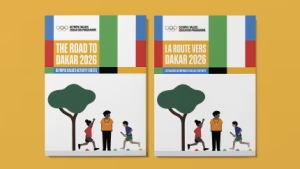
PHOTO/; Pexel
African experts are leading a quiet revolution in cancer care, one grounded in local expertise and global solidarity.
Through stronger regional partnerships, evidence-based treatment is becoming a realistic goal rather than a distant aspiration.
Unveiled at the 2025 African Organization for Research and Training in Cancer (AORTIC) Conference, held in Hammamet, Tunisia, from 2 to 5 November, this progress was brought to life through a major announcement by the National Comprehensive Cancer Network, in collaboration with the African Cancer Coalition and the American Cancer Society.
The partners showcased how cancer treatment guidelines across Sub-Saharan Africa have evolved from harmonized clinical practice frameworks to NCCN International Adaptations, marking a new chapter in the continent’s journey toward accessible, high-quality cancer care.
This marked a new phase in Africa’s efforts to provide accessible, evidence-based cancer care across the continent.
“Health ministries and care providers across Sub-Saharan Africa have worked tirelessly to expand access, build capacity, and implement evidence-based care,” said Katy Winckworth-Prejsnar, MPH, Global Program Director at NCCN.
“This transition to NCCN Adaptations reflects the progress and affirms the many ways this region is advancing toward higher quality cancer care for all.”
A Partnership Driving Regional Transformation
The NCCN Global Program has been working with the American Cancer Society, the African Cancer Coalition, and other partners since 2017.
That year, the organizations jointly launched the NCCN Harmonized Guidelines for Sub-Saharan Africa, developed under the leadership of the African Cancer Coalition.
The initiative was designed to bridge the gap between global cancer treatment standards and the realities of limited resources in many African countries.
The guidelines used a color-coded system offering both optimal care pathways and practical options for low- and middle-resource settings.
By 2019, these guidelines covered almost every major cancer type in the region, providing evidence-based recommendations for prevention, diagnosis, treatment, and supportive care.
Over time, as African nations improved their cancer care capacity, the Harmonized Guidelines evolved into the NCCN International Adaptations the same format used in other regions such as the Middle East and Latin America.
Today, there are 57 NCCN Guidelines for Sub-Saharan Africa, freely accessible online and via the Virtual Library of NCCN Guidelines® App.
This means oncologists, nurses, and policymakers across Africa can now rely on standardized, up-to-date reference tools to guide treatment decisions and policy planning.
Data Showing Real Progress
At AORTIC, Winckworth-Prejsnar presented data showing how much has changed since 2017.
Between 2017 and 2024, the number of inaccessible treatment options dropped from 82% to 54% a remarkable improvement in less than a decade.
This progress reflects expanded access to imaging services, biomarker testing, radiation therapy, and systemic treatment options, which are vital for effective cancer care.
Many of these advances have been made possible through stronger national cancer control plans, improved diagnostic infrastructure, and increased partnerships between African institutions and global organizations.
“Many therapies and technologies that were once out of reach are now becoming standard options thanks to the ongoing dedication of local clinicians, governments, and global partners committed to improving cancer outcomes across Sub-Saharan Africa,” Winckworth-Prejsnar noted.
“Still, more work is needed; the NCCN Adaptations for Sub-Saharan Africa represent a foundation to continue to expand access to essential treatments throughout the region.”
Why It Matters
Cancer remains a growing public health challenge in Africa, with more than 1.1 million new cases and 700,000 deaths recorded annually, according to the World Health Organization (WHO).
Many patients face late diagnoses, limited access to specialized care, and unaffordable treatments.
The NCCN Adaptations aim to address these barriers by ensuring that care providers, regardless of their setting, can make informed, resource-appropriate decisions based on globally recognized standards.
The approach helps countries balance aspiration and practicality, ensuring that even where technology or drugs are limited, patients still receive the best possible care within their context.
Beyond clinical practice, the initiative also supports capacity-building, training, and policy development, enabling African countries to integrate cancer treatment more effectively into their national health systems.
Accessible Knowledge for All
The NCCN Adaptations for Sub-Saharan Africa are available free of charge at NCCN.org/adaptations and through the Virtual Library of NCCN Guidelines® App.
Health professionals, patients, and caregivers can also find region-specific materials in multiple languages at NCCN.org/global.
For the NCCN and its African partners, this new phase is about more than just guidelines; it’s about equity.
It is about ensuring that advances in cancer science are not confined to high-income countries but reach communities where they are needed most.
As Winckworth-Prejsnar summarized, “This transition shows what’s possible when global expertise meets local leadership. It’s a reminder that equitable cancer care is not a distant goal—it’s already taking shape across Africa.”
About the National Comprehensive Cancer Network
The National Comprehensive Cancer Network® (NCCN®) is marking 30 years as a not-for-profit alliance of leading cancer centers devoted to patient care, research, and education.
NCCN is dedicated to defining and advancing quality, effective, equitable, and accessible cancer care and prevention so all people can live better lives.
Help us tell more untold stories of African Changemakers!
To DONATE or Pledge: CLICK HERE



